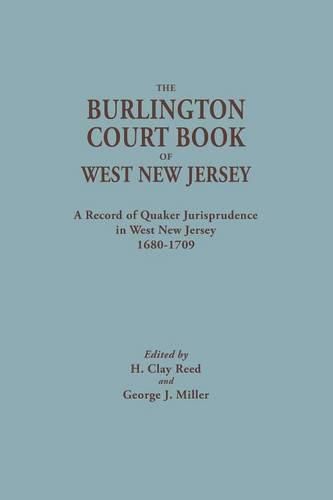Readings Newsletter
Become a Readings Member to make your shopping experience even easier.
Sign in or sign up for free!
You’re not far away from qualifying for FREE standard shipping within Australia
You’ve qualified for FREE standard shipping within Australia
The cart is loading…






This title is printed to order. This book may have been self-published. If so, we cannot guarantee the quality of the content. In the main most books will have gone through the editing process however some may not. We therefore suggest that you be aware of this before ordering this book. If in doubt check either the author or publisher’s details as we are unable to accept any returns unless they are faulty. Please contact us if you have any questions.
In 1676, shortly after the English seized the territory from the Dutch, New Jersey was divided into the colonies of East and West Jersey. Under the Duke of York--the original proprietor--East Jersey was settled predominantly by small landowners and entrepreneurs, while West Jersey was settled by Quakers, and was in fact the first Quaker colony in America, preceding Pennsylvania by six years. Organized by a group of Quaker proprietors in London in 1676/7, West Jersey was governed initially by nine commissioners who held court at Burlington. Besides its legislative authority over the colony, the court at Burlington had jurisdiction over local matters and served as the court of appeals for Salem and other towns in West Jersey after 1683. The minutes of the Burlington court, transcribed and published originally by the American Historical Association in 1944, and now available in this facsimile reprint, contain the day to day minutiae of Quaker temporal life, just as the meeting records illuminate Quaker spiritual life. While they reflect virtually all facets of life in West Jersey, the majority of the court minutes concern property rights, civil suits, grievances involving slaves, servants, and Indians, and all manner of domestic complaints. They constitute not only the most important judicial record of the colony of West Jersey but are a goldmine of clues about the early inhabitants of West Jersey. A mirror of the life and times of this almost forgotten colony, the minutes of the Burlington court offer rare possibilities for genealogical research, for many of the cases brought before the court, such as inquests, petty civil suits, and criminal cases, give the names of spouses, children, and other related individuals. Since the majority of the persons named in "The Burlington Court Book" were Quakers, researchers may be able to profit even further from the clues it contains by probing among New Jersey Quaker meeting records for the same period.
$9.00 standard shipping within Australia
FREE standard shipping within Australia for orders over $100.00
Express & International shipping calculated at checkout
This title is printed to order. This book may have been self-published. If so, we cannot guarantee the quality of the content. In the main most books will have gone through the editing process however some may not. We therefore suggest that you be aware of this before ordering this book. If in doubt check either the author or publisher’s details as we are unable to accept any returns unless they are faulty. Please contact us if you have any questions.
In 1676, shortly after the English seized the territory from the Dutch, New Jersey was divided into the colonies of East and West Jersey. Under the Duke of York--the original proprietor--East Jersey was settled predominantly by small landowners and entrepreneurs, while West Jersey was settled by Quakers, and was in fact the first Quaker colony in America, preceding Pennsylvania by six years. Organized by a group of Quaker proprietors in London in 1676/7, West Jersey was governed initially by nine commissioners who held court at Burlington. Besides its legislative authority over the colony, the court at Burlington had jurisdiction over local matters and served as the court of appeals for Salem and other towns in West Jersey after 1683. The minutes of the Burlington court, transcribed and published originally by the American Historical Association in 1944, and now available in this facsimile reprint, contain the day to day minutiae of Quaker temporal life, just as the meeting records illuminate Quaker spiritual life. While they reflect virtually all facets of life in West Jersey, the majority of the court minutes concern property rights, civil suits, grievances involving slaves, servants, and Indians, and all manner of domestic complaints. They constitute not only the most important judicial record of the colony of West Jersey but are a goldmine of clues about the early inhabitants of West Jersey. A mirror of the life and times of this almost forgotten colony, the minutes of the Burlington court offer rare possibilities for genealogical research, for many of the cases brought before the court, such as inquests, petty civil suits, and criminal cases, give the names of spouses, children, and other related individuals. Since the majority of the persons named in "The Burlington Court Book" were Quakers, researchers may be able to profit even further from the clues it contains by probing among New Jersey Quaker meeting records for the same period.